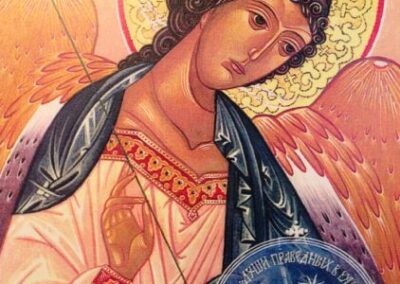As I was sitting in Mass this morning, it occurred to me that I had written a Lenten reflection on this Sunday’s readings back in 2002. So I came home, found the reflection in an old computer file and have reprinted it here in its entirety — because some things never change:
This Sunday’s readings are so familiar that it would be easy to overlook their significance now, at the start of Lent. In fact, the first reading’s account of the fall of Adam and Eve is one story that many of us would probably prefer to forget anyway. It’s a reminder of our human frailty, of our innate sinfulness. It’s a story that hits a little too close to home, at least for me.
Would I have been able to withstand the temptation of the Tree of Knowledge? I’d like to think I would have at least given it the old college try. But the serpent’s offer is so powerful, so desirable that I can understand completely how Adam and Eve were tricked by it. “You certainly will not die! No, God knows well that the moment you eat of it you will be like gods who know what is good and what is bad,” the serpent tells Eve as he woos her with the forbidden fruit.
“You will be like gods.” Who among us wouldn’t like a little inside information when it comes to our own lives? I battle against that desire every day, always trying to predict all the “what-ifs” and making myself frantic with worry over things I can’t control. No, humankind would not have wanted me minding the store in the Garden of Eden.
Lent is an appropriate time to come to this conclusion, I think. As we begin our 40-day journey, it is fitting to contemplate the power of sin in our lives, and the power we so willingly hand over to all the things that pull us further away from God. We want to believe we can affect the outcome of every detail of our lives – from the fender bender we can’t erase to the sickness we can’t accept. If we used all that energy to turn our hearts and fears over to God instead, how much more fulfilling would our days on this earth become? I think the transformation would be mind-boggling for most of us.
I’ve witnessed that kind of serenity in people I’ve known who are truly trying to walk the path set out for them by God. They don’t hem and haw over the little things. They don’t act as if they can rewrite history. That doesn’t mean that they accept bad news with joyful smiles. It just means that they are willing to give up the desire to “be like gods.” They accept the fact that we are human and completely reliant on the one, true God.
Just how reliant becomes abundantly clear when the Gospel reading unfolds and we see Jesus tempted in the desert, bringing the fall of humankind around to its amazing “conclusion.” Jesus is the new Adam, only this time humanity is salvaged from the wreckage of Eden. Jesus, God made man, is able to do what mere mortals cannot. He withstands the overwhelming temptation to prove that he alone is in control of his life. He defeats the power of sin with the power of faith, and he invites each one of us to do the same.
Not that it’s easy to beat back the desire to “be like gods,” but Jesus challenges us today to walk the path set out for us by his Father, even when it is rock-strewn and uneven. When we reach the end of that road, we will find that the condemnation wrought by humanity’s fall in the Garden of Eden has been transformed by the salvation promised through Christ’s victory on the cross at Calvary.








